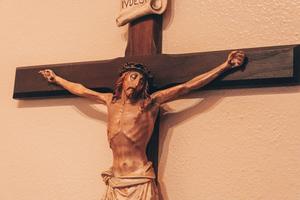Word of God Sunday: Proclaiming the Gospel of the Kingdom
User’s Guide to Sunday, Jan. 22

Sunday, Jan. 22, is the Third Sunday in Ordinary Time. Mass readings: Isaiah 8:23—9:3; Psalm 27:1, 4, 13-14; 1 Corinthians 1:10-13, 17; Matthew 4:12-23 or 4:12-17.
In these early weeks of “ordinary” time, we are being introduced to Jesus and the beginnings of his public ministry.
Matthew tells us four things about Jesus’ ministry.
“When Jesus heard that John had been arrested, he withdrew to Galilee. He left Nazareth and went to live in Capernaum by the sea. …”
The relocation of Jesus northward from Judea up to Galilee tells us of the hostility of the southern regions to the message of John the Baptist and Jesus. The religious ruling class in Jerusalem and the Herodian dynasty felt threatened by the popularity of John the Baptist and Jesus. So Jesus moved north to less hostile and more fertile territory in order to begin his public ministry.
There is an important lesson in this: While we must carefully preserve Christian orthodoxy and only accept doctrinal development that is organic and faithful to the received Apostolic Tradition, we can inadvertently stifle the Holy Spirit, who speaks to us through unexpected people and in unexpected ways. Sometimes we can insist upon a single position in matters in which Christians are allowed freedom.
For example, there are various degrees of expression permitted in the liturgy; there are also different schools of theological thought that are allowed by the Church.
“From that time on, Jesus began to preach and say, ‘Repent, for the kingdom of heaven is at hand.’”
To those who make light of sin and their condition as sinners, Jesus says, “Repent.”
Many today say repentance is “unwelcoming.” But Jesus said it anyway. He calls us to understand our condition and need for mercy and grace. We are also told that the Kingdom of heaven is at hand: that the grace and mercy of God are available to rescue us from this present evil age; from the kingdom of darkness; and grant us admittance to the Kingdom of light.
If you don’t know the bad news, the good news is no news. So the Church must announce the call to repentance, but must also offer hope and mercy to sinners.
“As he was walking by the Sea of Galilee, he saw two brothers, Simon who is called Peter, and his brother Andrew, casting a net into the sea; they were fishermen. He said to them, ‘Come after me, and I will make you fishers of men.’”
In building his kingdom, Jesus summons men to follow him. He will train them to be the leaders of his Church as apostles.
The kingdom of God is not just concerned with calling disciples, but also with developing leaders to provide order and authority in the Church. The Lord builds on something they know: fishing. He starts with the familiar in order to draw them to the less familiar. In a way, he is saying that the gifts they are currently using are just the ones they need to use as leaders in God’s kingdom.
“He went around all of Galilee, teaching in their synagogues, proclaiming the gospel of the kingdom, and curing every disease and illness among the people.”
Note that all of Galilee was his mission field, and he covered it comprehensively. Soon, he will send them to the ends of the earth. He also cured people of every disease and illness.
So the Church is catholic, with a small “c” (meaning universal) and addresses every part of the world, providing a comprehensive vision for life. We seek to bring healing, and where physical remedies are not possible, the truth of the Gospel reassures us that every suffering, faithfully endured, brings forth glory.
- Keywords:
- msgr. charles pope
- user’s guide to sunday
- user's guide to sunday
- following jesus
- ordinary time
- Third Sunday of Ordinary Time















